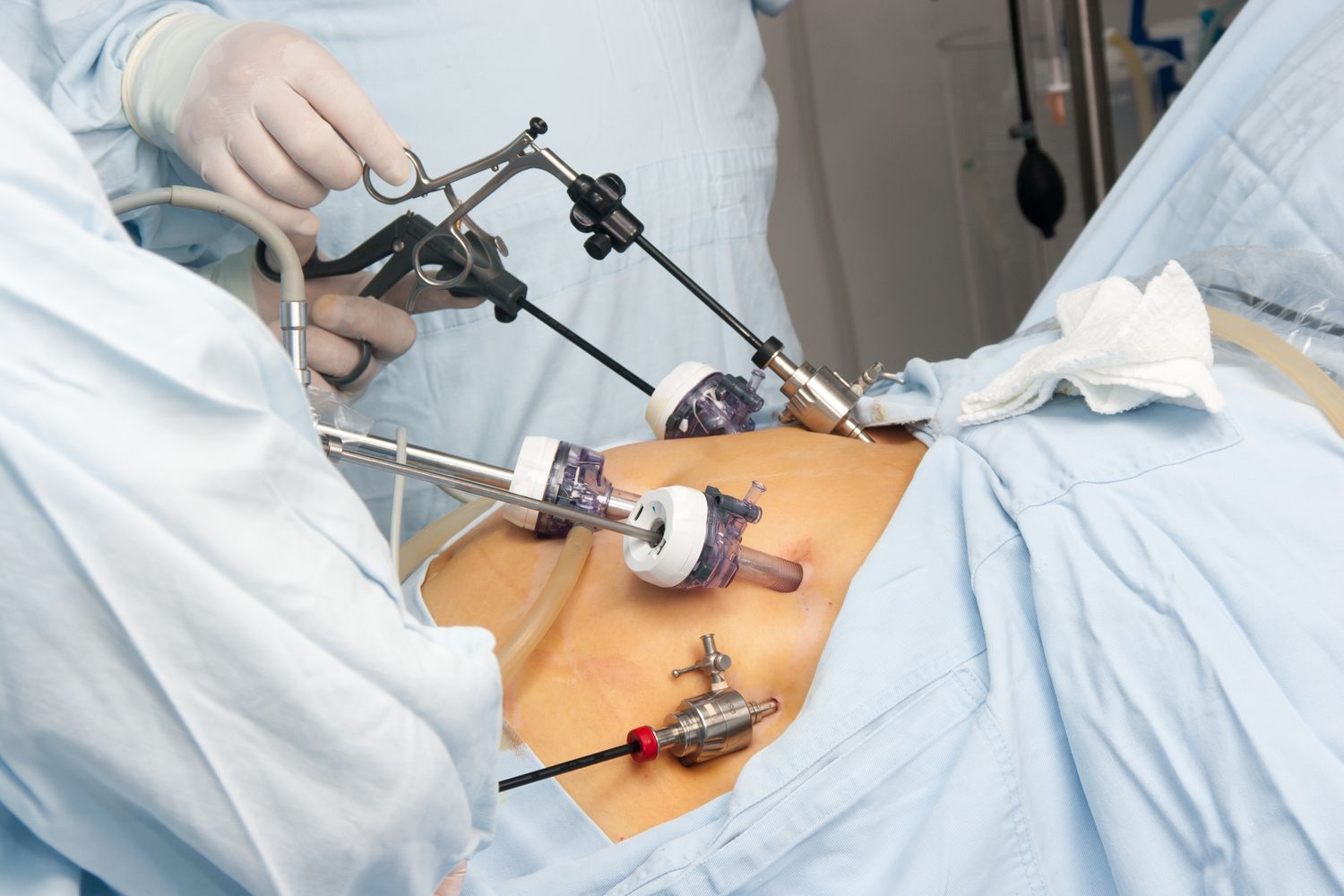Gastric bypass surgery, also known as bariatric surgery or Roux-en-Y gastric bypass, is a procedure aimed at promoting weight loss in severely obese individuals. It is a reversible procedure but comes with various risks, especially as it alters the functioning of the stomach and small intestine. Before contemplating such surgery, it is crucial to consult with a medical professional to thoroughly discuss the potential risks, benefits, and suitability of gastric bypass surgery based on an individual's unique needs and circumstances. The decision should be made with the guidance of healthcare experts.
Notably, comedienne Anita Asuoha, widely known as Realwarripikin, recently underwent this surgery as a means of weight loss. She shared her experience, explaining that her decision was driven by her husband's concern for her health. Despite her previous attempts at weight loss through diet and exercise, she found it challenging. Realwarripikin's journey toward surgery was supported by her husband, doctor, and family, and she is satisfied with the outcome. She also emphasizes the importance of normalizing fitness and maintaining a healthy lifestyle.
For those curious about gastric bypass surgery, here are some essential points to consider:
-
Evaluation: Before proceeding with the surgery, a comprehensive evaluation by various medical professionals, including surgeons, dietitians, and psychologists, is necessary. They will determine if the procedure is suitable at the given time and provide guidance on preparation and recovery.
-
Eligibility: Gastric bypass surgery is typically recommended for individuals with a body mass index (BMI) of 35-40 or higher, coupled with severe obesity-related health issues such as type 2 diabetes, hypertension, or sleep apnea. However, consultation with healthcare providers is essential to confirm eligibility.
-
Procedure Details: During gastric bypass surgery, a small pouch is created at the top of the stomach, separated from the rest of the stomach, and directly connected to the small intestine. This bypasses a portion of the stomach and the initial segment of the small intestine, achieving weight loss through restriction and malabsorption mechanisms.
-
Weight Loss and Lifestyle Changes: The surgery often leads to significant weight loss, with 60-80% of excess body weight shed within 12-18 months. Patients must commit to lifestyle changes, including strict dietary guidelines, portion control, and food avoidance, for long-term success. Regular exercise and healthcare follow-ups are vital.
-
Health Benefits: Gastric bypass surgery can yield substantial improvements in obesity-related health conditions such as type 2 diabetes, high blood pressure, sleep apnea, and joint pain. It may also enhance or resolve other issues associated with obesity, including heart disease and fertility.
-
Side Effects: As with any surgical procedure, gastric bypass carries potential risks and complications. These may encompass infection, bleeding, blood clots, hernias, dumping syndrome (characterized by nausea, cramping, and diarrhea), nutritional deficiencies, acid reflux, eating restrictions, stomach perforation, low blood sugar, and more.
-
Emotional and Psychological Factors: Patients often experience emotional and psychological changes following surgery, including body image concerns, depression, anxiety, and binge eating disorders. The support of family and friends is crucial during this period.
In conclusion, gastric bypass surgery is a significant step that should be carefully considered in consultation with medical professionals. It offers the potential for substantial weight loss and improved health but also entails risks and necessitates lifelong commitment to dietary and lifestyle changes. Emotional and psychological aspects should not be overlooked, and a robust support system is vital for a successful journey.



